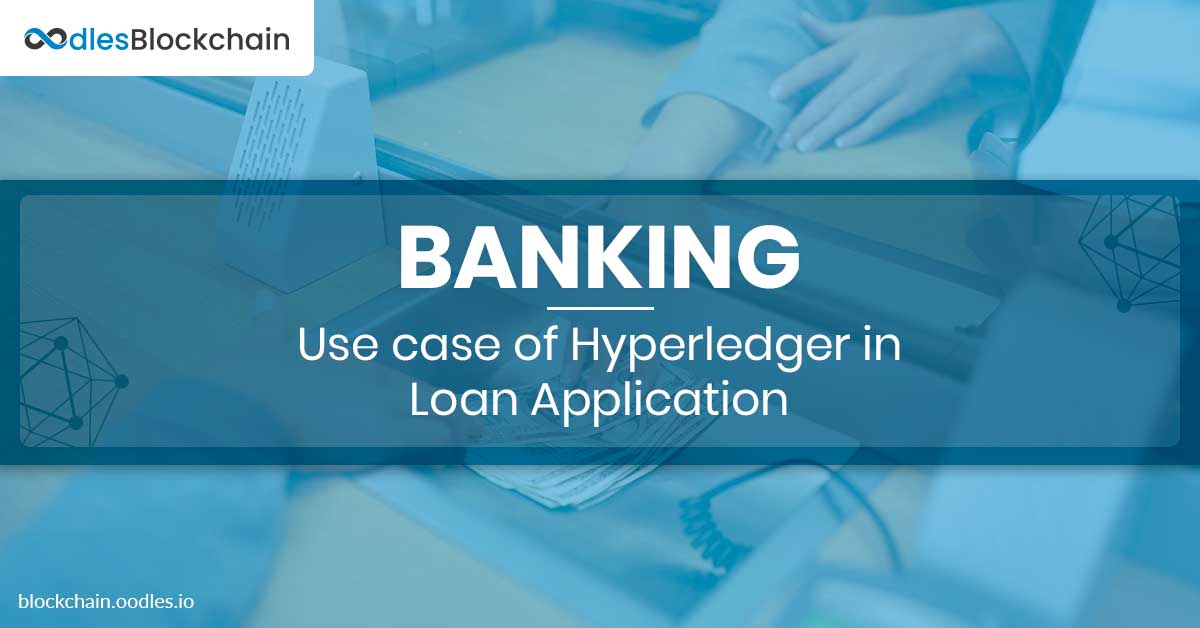-
Banking: Loan Applications Challenges
Borrowing money from banks is a time-consuming and complex process. Banks accept loan applications and lend money to only good-risk borrowers.
To ascertain the right borrowers, banks collect details of personally identifiable information (PII) such as DoB (Date of Birth) government IDs, electricity bill, passport number, and whatnot. They use information bits to assess an applicant’s credit rating that predicts their debt payback ability, and the likelihood of debt default. Also, regulations in many cases require certain PIIs to be shared with regulatory authority, such as money laundering.
The prime concern with holding PIIs in large amounts is that it exposes the data to threats like hacks and tempering. It makes the PIIs stored in centralized bank servers an easy target for cyber-terrorists.
Solution: Hyperledger Indy
Hyperledger Indy is one of the prominent blockchain technology frameworks under the Hyperledger blockchain application development project for banking use cases.
Hyperledger Indy
Indy offers a unique identity solution in such a use case. It provides tools, libraries, and reusable components to generate immutable and secure digital identities on blockchains or other distributed ledgers. It also makes the digital identities interoperable across various entities like administrative domains, and applications.
Also Read: How Blockchain is Transforming the Banking and Financial Space
Hyperledger Indy-based Solution
Indy-based solutions enable borrowers to share only specific information for different banking operations. It does that in a way that ascertains trust, infuse confidence in the lender, and eventually settles obligations from regulators. A borrower becomes eligible to submit loan applications to 50 different banking institutions within seconds with a digital identity solution. Also, it eliminates the need to store any sensitive business data or personal information into hackable databases controlled by centralized authorities.
Indy enables users to generate zero-knowledge proofs instead of revealing any PII to validate information such as:
- Minimum age limit
- Possession of a valid government ID number
- Credit score reached a set threshold within the
past week
Immutable distributed ledger-based identity created with Hyperledger Indy can form a global source-of-truth, which provides value to different stakeholders. Applicants can permit, and everyone can verify when and how it was given. Also, banks can comply with regulatory requirements and provide an immutable audit trail.
Consequently, it will enable flawless market operations. Banks will be able to offer loans without trust concerns, while applicants will be able to protect their PII.
Other Hyperledger Blockchain Frameworks to Strengthen the System
If we add strengths of other Hyperledger applications and solutions (projects), this use case can become more simplified and efficient.
For instance, at Oodles, our blockchain application developers can make use of Hyperledger Burrow to automate loan application processes with smart contracts and connect them to Indy-based identities. They can also use Hyperledger Fabric to introduce a membership system by linking it with the pre-existing, self-sovereign identity on the loan application.

Our Offices
INDIA
Emaar Digital Greens, Sector 61,
Gurugram, Haryana
122011.
Welldone Tech Park,
Sector 48, Sohna road,
Gurugram, Haryana
122018.














